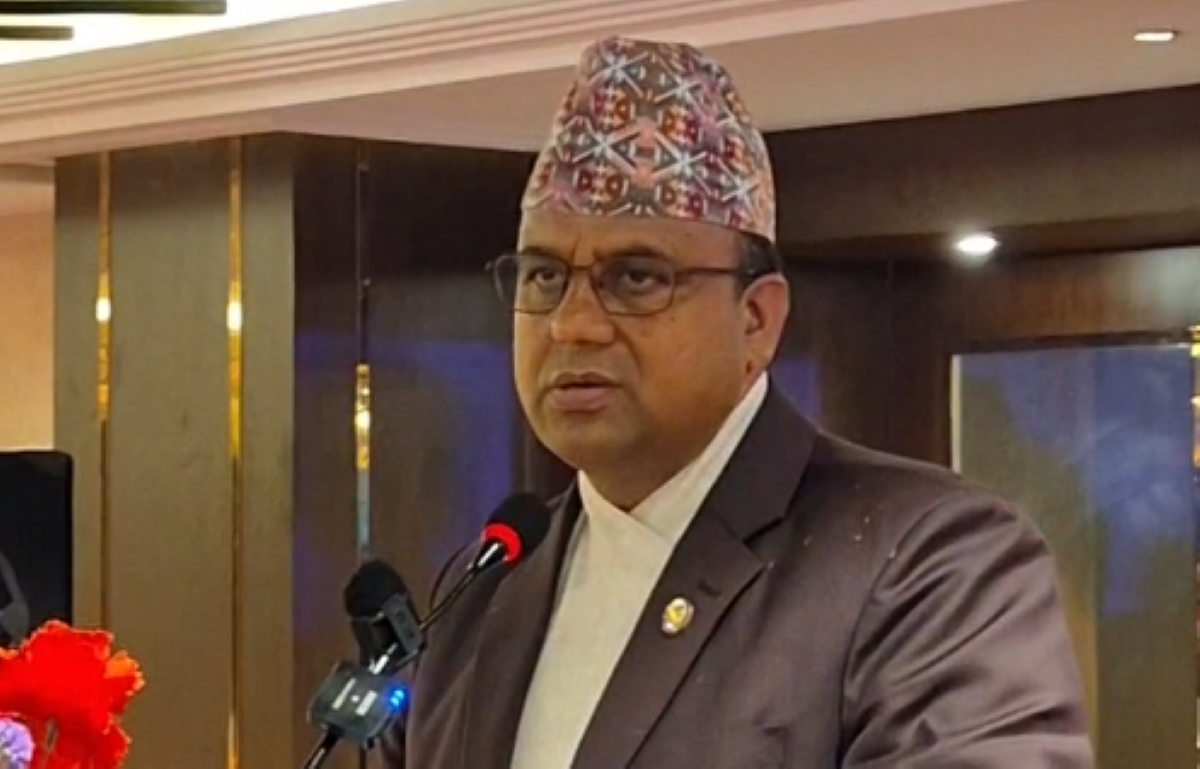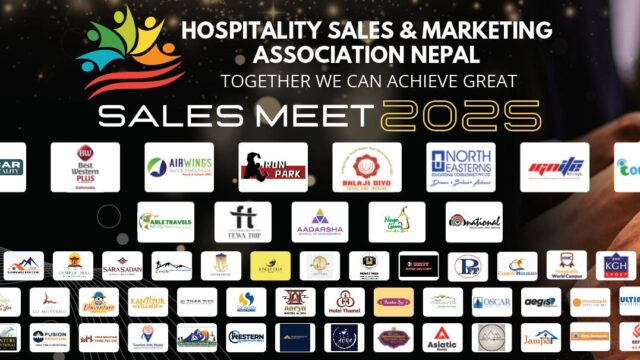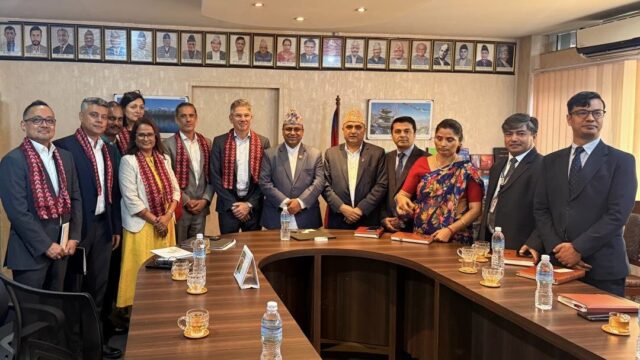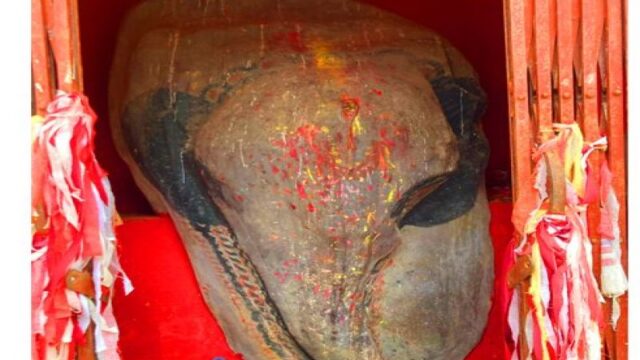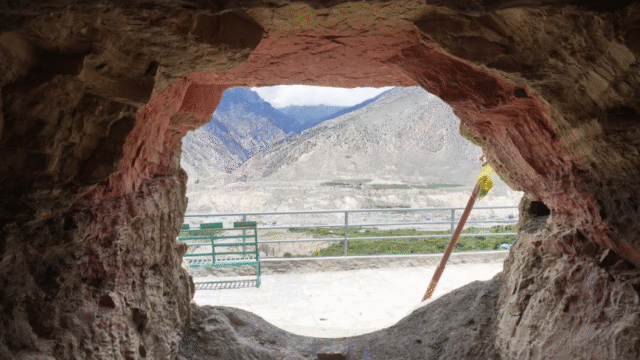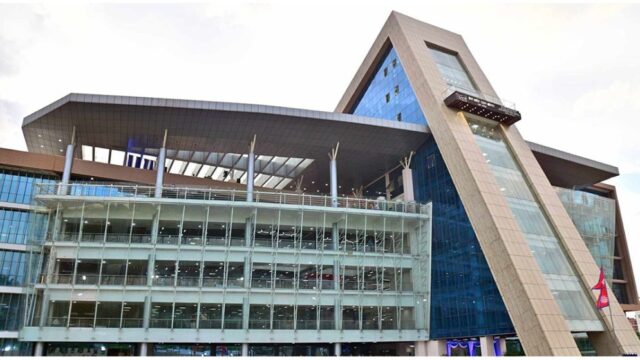Minister for Culture, Tourism and Civil Aviation, Badri Prasad Pandey, has pledged the government’s firm commitment to addressing the pressing issues faced by tourist guides across Nepal. Speaking at the inauguration of the 9th National Tourist Guide Conference organized by the Tourist Guide Association of Nepal (TURGAN) in Kathmandu, Minister Pandey affirmed that the concerns of tourist guides will be resolved in a phased manner, giving priority to immediate and long-standing issues alike.
Government to Address Tourist Guides’ Issues
During his address, Minister Pandey acknowledged the pivotal role that tourist guides play in the development of Nepal’s tourism sector. He described them as vital pillars who not only assist tourists but also represent and promote the broader vision and image of Nepal’s tourism to the world. “Guiding tourists is not merely a job, it is a duty that aligns with national pride and responsibility. As the Minister for Tourism, I assure you that all your issues, whether administrative or policy-related, will be addressed by the government,” he said.
He further stated that the government is aware of the need for systemic reforms and will gradually introduce policy and legal frameworks to institutionalize solutions for long-term improvements. In the short term, issues that require urgent action will be prioritized and resolved accordingly.
Expansion Beyond Kathmandu Urged
Minister Pandey also emphasized the importance of decentralizing tourist guiding services, which have long been concentrated in the Kathmandu Valley. He encouraged TURGAN to take the lead in expanding the network of qualified tourist guides to all seven provinces. “If Nepal’s tourism is to flourish at the grassroots level, then qualified and licensed tourist guides must be available across the country, especially in potential tourism hubs beyond the capital,” he added.
Call for Regulation and Professionalism
On the same occasion, TURGAN President Thaneshwor Devkota highlighted key challenges faced by the guiding community. One of the major concerns he raised was the increasing number of unlicensed individuals working as tourist guides, which not only undermines the profession but also affects the experience and safety of visiting tourists. He urged the government to take stringent action against such unauthorized practices. “Only those with legal authorization should be allowed to guide tourists. This protects both the dignity of the profession and the image of the country,” Devkota stressed.
President Devkota also elaborated on the critical role tourist guides play as cultural ambassadors. “Every licensed tourist guide is not just an information provider, they are Nepal’s messengers of goodwill. They carry the responsibility of representing our culture, heritage, and values to visitors from across the globe,” he said. According to him, Nepal currently has over 5,000 licensed tourist guides actively engaged in the sector.
Tourist guides in Nepal serve in diverse regions ranging from the Himalayan trekking routes of Everest and Annapurna to historical and cultural sites in the Kathmandu Valley and the Terai plains. Despite their growing contribution, many guides continue to face hurdles such as inadequate recognition, lack of insurance and social security benefits, irregular employment, and insufficient training opportunities.
Minister Pandey’s assurances have brought a sense of optimism among participants, who believe that with government backing, their profession will gain much-needed institutional support and recognition. His commitment to introducing long-term policies has been especially welcomed by senior guides and trainers who have been advocating for systemic reforms for years.
Looking Ahead
Furthermore, the Ministry’s initiative to involve tourist guides in national policy dialogue and its recognition of their dual role as both navigators and national representatives is being viewed as a transformative step for the sector. TURGAN has also expressed readiness to collaborate with the government on policy implementation, training programs, and ethical standardization to ensure quality tourism services.
The 9th National Tourist Guide Conference brought together tourist guides from across the country and served as a platform to discuss issues related to training, licensing, working conditions, professional ethics, and the role of technology in modern tourism. The event also featured workshops and group discussions aimed at building unity among guides and improving service delivery standards in line with global tourism trends.
As Nepal positions itself as a top tourist destination in South Asia, enhancing the capacity, recognition, and welfare of its tourist guides remains essential. Experts at the conference emphasized that improving the conditions of tourist guides directly translates to better visitor experiences, which in turn helps in achieving sustainable tourism goals.
With government and association collaboration underway, the future looks more hopeful for Nepal’s guiding community. If the Ministry delivers on its promises, tourist guides may soon receive not just recognition but also the policy backing and protection they deserve, a much-needed move for the overall growth and professionalism of Nepal’s tourism industry.
